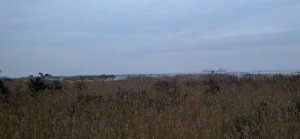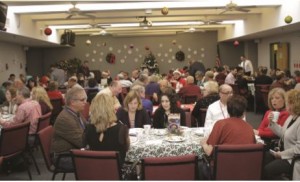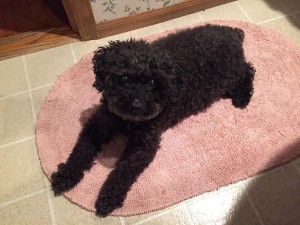Stepping away from my first ‘real’ job, I find myself asking, ‘did I use what I learned in undergraduate and graduate school?’ My answer is: ‘Yes, but I learned even more on the job.’

I’ve spent the past six months interning with the U.S. Army Corps of Engineers. The Corps provides engineering services to strengthen America’s security and reduce risk from disasters. We work on environmental remediation, flood risk management, and navigation improvement projects, to name a few.
Contrary to the name, the U.S. Army Corps of Engineers is made up of economists, biologists, and policy analysts, as well as engineers, among others. I was hired as an Economic Trainee through the Pathways Internship Program at the New England District in Concord, Massachusetts.
I frequently draw from my academic knowledge base in economics, statistics, science, policy, and hydrology at the Corps. I use this knowledge when talking about the levees and dams, beach replenishment rates, and the public’s concerns.
I pull from this knowledge base with every project I work on.
The Human Dimension

But I’ve also, not surprisingly, learned a lot during my time at the Corps. Sure, I learned a few new equations and how to use a couple new modeling programs, but that is not what I tell people I am gaining from this experience.
I tell people I am learning about the human dimension of the work environment. About how to work as a team. About how to ask for help. About how to interact with different personalities. About how to get things done.
This is what all of those (annoying) group projects you are required to do in school are trying to get at.
If I could only give four recommendations for newbies entering the workforce, they would be:
- Be professional and responsible (but don’t forget to be personable)
- Get to know your coworkers (lunch, anyone?)
- Ask questions (the right questions, if possible)
- Be prepared for something to go wrong (it will)
For many people, internships are long interviews. This can make the intern feel they must be ‘on’ or professional constantly. While you should absolutely be professional, don’t forget to be personable.

Being personable and getting to know your coworkers go hand-in-hand. It is not only nice to have someone to talk to at lunch and share puppy stories with, but it is also helpful when trying to get things done. It’s part of the give and take of team work because you never know when you will be the one who needs help or support.
Asking educated questions is the quickest way to get things done. Nobody knows everything; this is especially true at large organizations and agencies like the Corps. Knowing who to ask (cough knowing your coworkers cough) is half the battle. People are usually eager to help, because they will probably need your help at some point as well.
“It is a sign of an incompetent worker when they do not anticipate something going wrong on the first run-through.”
Models have bugs, data can be incomplete, orders from headquarters can change–it happens. It is important to remain calm and deal with the problem at hand. You can anticipate issues by getting your work done early. This gives you a chance to review your work before sending it off and also gives the recipient more time to find any errors.
Continuing to Learn
The recommendations I made for newcomers to the workforce, like myself, are not new. Most already know them, but I have found there is a difference between knowing and learning. Learning sticks harder.
This is what makes the Bard Center for Environmental Policy’s graduate programs so great. An intensive first year of classes allows you to have an extended internship, giving you real-world experience to let you learn and grow in ways that a classroom cannot.
It is hard to think of how I could have had a better experience working with the Corps. I have a fantastic supervisor and great coworkers helping me learn and grow as an employee and person.
I am continuing to work with the Corps in Concord, MA part-time as I finish my Master’s degree. I will use the lessons I learned at the Corps in my future endeavors, where I will surely continue to learn.
